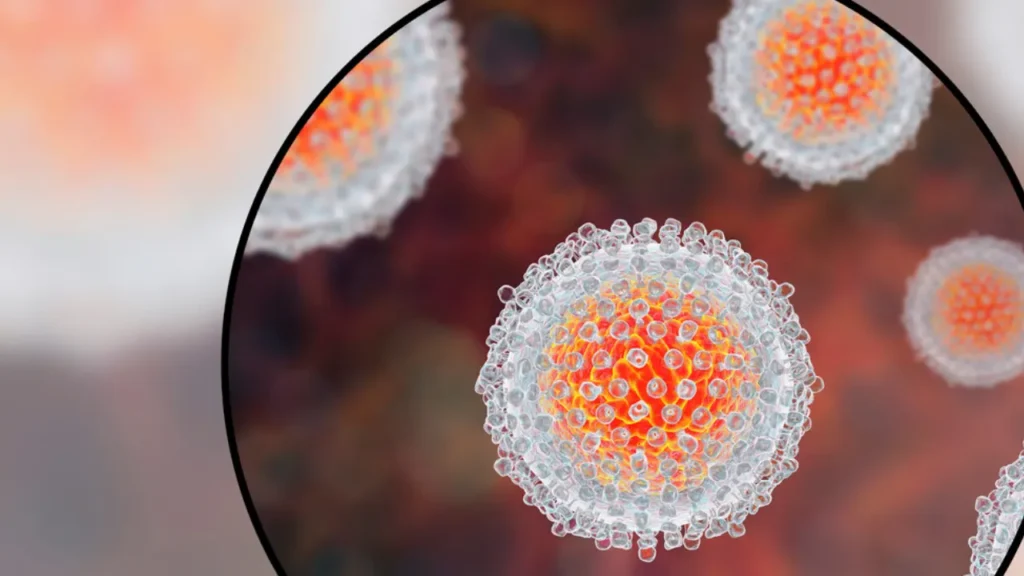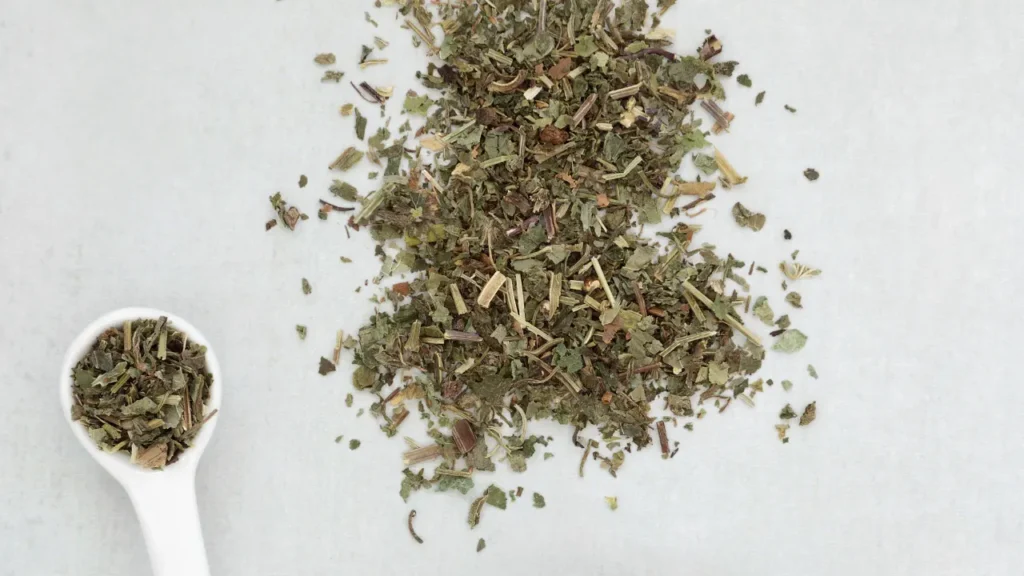The herb American Ivy (Hedera helix L.), which has been utilized for its therapeutic properties for millennia, is well-known in traditional medicine. English ivy, commonly referred to as American Ivy, is a kind of flowering plant indigenous to Western Asia and Europe. It is a popular ornamental plant used medicinally for a long time. Numerous active substances found in the plant’s leaves have been proven to provide a range of health advantages.
Understanding its nature, chemistry, health advantages, ideal dose, potential adverse effects, and potential interactions with other drugs is crucial for ensuring safe administration and for better understanding its prospective applications. This article aims to provide relevant information to assist readers in making informed choices as to whether to take American Ivy as a supplement.
You May Also Like:
Beeswax: Benefits, Dosage, Side Effects, Drug Interactions, And Other Important Information
White Sandalwood: Benefits, Dosage, Side Effects, Drug Interactions, And Other Important Information
American Ivy: Benefits, Dosage, Side Effects, Drug Interactions, And Other Important Information is an original (NootropicsPlanet) article.
Nature of American Ivy
American Ivy is a climbing plant that can reach a height of 20 meters. The leaves are glossy, dark green, and have a characteristic five-lobed form. The evergreen plant is typically grown for decorative purposes. The plant’s leaves are rich in active substances such as polyacetylenes, flavonoids, and saponins. There are several health advantages to these substances, according to research.
Health Benefits of American Ivy
Since ancient times, American Ivy has been used for therapeutic purposes. It has been demonstrated that the plant has various health advantages, including the capacity to ease respiratory problems like coughs and bronchitis. Additionally, it has been shown that the plant possesses anti-inflammatory qualities, which may help lessen inflammation in the body.
The potential of American Ivy to ease respiratory problems is one of its primary health advantages. According to numerous studies, the plant can lessen coughing and wheezing in people with respiratory diseases like bronchitis and asthma. The plant contains saponins, which are thought to be the reason for its beneficial effects on the respiratory system.
It has also been demonstrated that American Ivy possesses anti-inflammatory effects. Numerous substances found in the plant, including polyacetylenes and flavonoids, have anti-inflammatory properties. These substances can lessen bodily inflammation, lowering the chance of developing chronic illnesses, including heart disease and arthritis.

Chemistry of American Ivy
American Ivy has several chemical constituents that could positively affect one’s health. Saponins are one of the most significant types of chemical elements present in American Ivy. Plant glycosides called saponins are naturally occurring and have a variety of physiological effects on the body. It has been discovered that saponins possess anti-inflammatory and expectorant qualities, which may make them effective for treating respiratory disorders, including asthma and bronchitis.
Flavonoids are yet another significant class of substances included in American Ivy. Many plants contain flavonoids, a kind of antioxidant. They may offer a variety of health advantages, including lowering inflammation and defending against cancer and heart disease. Flavonoids in American Ivy may support the plant’s anti-inflammatory and antioxidant properties.
Polyacetylenes and coumarins are two other chemicals found in American Ivy that may have health advantages. It has been discovered that polyacetylenes, a type of organic molecule, exhibit antibacterial and antifungal effects. A class of substances known as coumarins has been found to have anti-inflammatory and antioxidant properties.
Physiological Mechanisms of Action
American Ivy’s physiological mode of action is not well understood. The effects of the plant on the body have, nevertheless, been the subject of numerous investigations, which have offered some plausible modes of action.
American Ivy has been demonstrated to have expectorant characteristics, which can aid in liquefying mucus and phlegm in the respiratory tract. The plant’s saponins may encourage secretion production in the bronchial passages, facilitating mucus expulsion. Additionally, the plant’s anti-inflammatory qualities might aid in reducing respiratory tract inflammation and enhance breathing.
Inflammatory Diseases
It has been shown that American Ivy possesses anti-inflammatory qualities, which may help treat inflammatory diseases like heart disease and arthritis. The plant’s flavonoids can aid in reducing oxidative stress, which can result in inflammation. Additionally, the saponins in American Ivy may prevent the synthesis of inflammatory substances, including prostaglandins and cytokines.
Viruses and Microbes
Numerous substances in American Ivy include antibacterial and antifungal effects, which can aid in defending the body against potentially hazardous pathogens. According to research, Candida albicans and Staphylococcus aureus are just two of the bacteria and fungi against which the plant’s polyacetylenes are effective.

Optimal Dosage of American Ivy
No established American Ivy dose works best. However, most research has employed daily dosages of 50–100 mg of the plant extract. Following the dose instructions on a product’s label is crucial because too much plant ingestion might have adverse effects.
Side Effects of American Ivy
In general, moderate consumption of American Ivy is regarded as safe. The plant, however, can have negative consequences if consumed in excess. American Ivy frequently causes nausea, diarrhea, and stomach distress as adverse effects. Rarely, the plant might result in an allergic reaction, including symptoms like skin rash, itching, and breathing difficulties.

Potential Substance Interactions with American Ivy
On the possible drug interactions with American Ivy, little information is currently known. Nevertheless, recent research has suggested that the plant may interact with various medicines, such as anticoagulants and antiplatelet pharmaceuticals. Therefore, if you are taking any drugs, it is crucial to speak with a healthcare professional before taking American Ivy.
Best Responsible Uses of American Ivy
Inflammatory illnesses like arthritis and heart disease may both be treated with American Ivy, as well as respiratory conditions like coughs and bronchitis. The plant can be taken as a supplement as capsules, pills, or tinctures. Additionally, it can be brewed as a tea and inhaled as steam. Using American Ivy as a tea or steam should be done with caution.
Some people may get respiratory discomfort after inhaling steam from the plant. It is advisable to start with a tiny amount of the herb and gradually increase it as tolerated. It’s crucial to adhere to the dosage instructions on the product label while taking American Ivy as a supplement. Ingestion of the plant in excess can have adverse effects. If you are on any medications, it is essential to speak with a healthcare professional before taking American Ivy.
American Ivy:
Conclusion
American Ivy is a common plant with a rich history of use in traditional medicine, particularly in Europe. However, its health benefits are largely anecdotal and not well-supported by scientific evidence. While American Ivy has been used in folk medicine for various purposes, including respiratory conditions, arthritis, and wound healing, there is limited research to confirm its efficacy and safety for these indications. American Ivy is generally considered safe when used as directed but can cause skin irritation and allergic reactions in some individuals.
Ingestion of American Ivy berries or other parts of the plant can cause gastrointestinal upset and toxicity, especially in children and pets. More research, including well-designed clinical trials, is needed to understand the potential health benefits of American Ivy better and determine its appropriate use in modern medicine. As with any herbal remedy, it’s important to consult a healthcare professional before using American Ivy, especially if you have underlying health conditions or are taking medications.

References:
- “The Role of Saponins in Plants and People.” National Center for Biotechnology Information, U.S. National Library of Medicine, 30 Mar. 2010, https://www.ncbi.nlm.nih.gov/pmc/articles/PMC3113383/
- “Pharmacological and Therapeutic Properties of Hedera helix: A Review.” National Center for Biotechnology Information, U.S. National Library of Medicine, 21 Dec. 2016, https://www.ncbi.nlm.nih.gov/pmc/articles/PMC5376420/
- “Coumarin: A Brief Review on Synthetic Strategies and Therapeutic Potential.” National Center for Biotechnology Information, U.S. National Library of Medicine, 26 Oct. 2018, https://www.ncbi.nlm.nih.gov/pmc/articles/PMC6225514/
- “The Role of Polyacetylenes in Plants and People.” National Center for Biotechnology Information, U.S. National Library of Medicine, 30 Nov. 2010, https://www.ncbi.nlm.nih.gov/pmc/articles/PMC2996823/
Important Note: The information contained in this article is for general informational purposes only, and should not be construed as health or medical advice, nor is it intended to diagnose, prevent, treat, or cure any disease or health condition. Before embarking on any diet, fitness regimen, or program of nutritional supplementation, it is advisable to consult your healthcare professional in order to determine its safety and probable efficacy in terms of your individual state of health.
Regarding Nutritional Supplements Or Other Non-Prescription Health Products: If any nutritional supplements or other non-prescription health products are mentioned in the foregoing article, any claims or statements made about them have not been evaluated by the U.S. Food and Drug Administration, and such nutritional supplements or other health products are not intended to diagnose, treat, cure, or prevent any disease.


